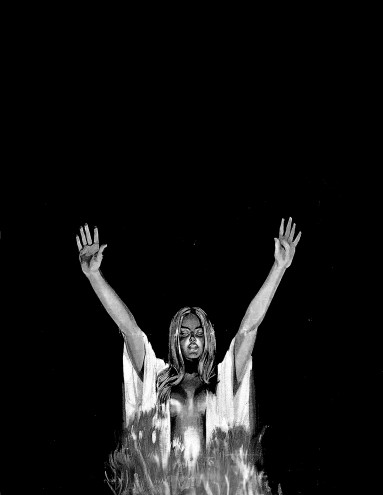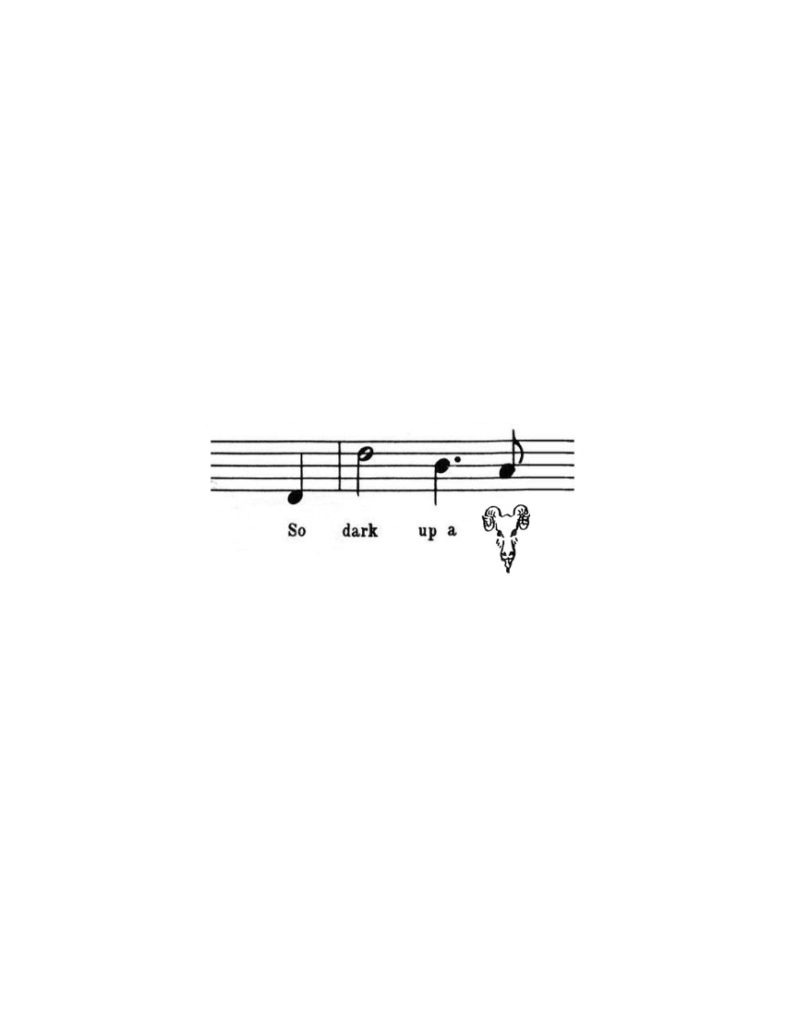Haunted House
Witch house may be obscure, but some of its artists really get around. Salem co-produced “Black Skinhead” off Kanye’s new album. Grimes, too, was initially tagged as a “witch house” artist, and her music appeared on mixes alongside oOoOO, Salem, and others. Witch house often involves technically creative and difficult production, and its tools are attractive to other artists.
……..
This depth is evident in Greenspan’s wider influences. Take “Mouchette,” for instance—so named for the French director Robert Bresson’s 1967 film about a girl who comes of age in a rural French village. Mouchette, traced in black and white, proceeds from encounters with an abusive father to those with an abusive piano teacher, from a flirtatious round of bumper cars to a slap from said father who won’t let her pursue another man when she’s out at the carnival.
After her rape, the death of her mother, and her own suicide, you can feel Mouchette’s pain bodily, in your ribs and in your shoulder blades—or you might, if it weren’t for Bresson’s deflationary film techniques. The scene where Mouchette takes her life is typical: Clutching a torn white dress, she rolls down a hill and out of the frame, then into another shot and out of that one. We hear her splash in the pond, but the camera doesn’t shift until she’s beneath the surface, and then, it’s conspicuously stationary. Monteverdi plays. Mouchette is a symbol.
Greenspan’s track collapses this distance, bringing it back to the body. His “Mouchette” announces itself with strong elements of percussion that don’t land but pulse—they aren’t isolated so much as suffused through more inscrutable female vocals, which might belong to a child. And while it responds to Bresson’s deflations, it also responds to conceptions of the subgenre. If witch house is easily described as ghostly, the percussion of “Mouchette” is an attempt to reconstitute its parts so they seem more present. While Greenspan’s songs can be said to linger in case after case, “Mouchette” also seems to make a choice—to invest in Mouchette’s political, physical, and ghostly identity over Bresson’s.
The percussion is also lined with what sounds like mouse clicks. Ticking restlessly as they do, they recall tropes of the internet, of online relationships and their representation. “Mouchette,” French for “little fly,” is the same name used by Martine Neddam for her internet art project, Mouchette.org, where themes of sex and death spin from the dark fantasies of a girl who, since the site’s creation in 1996, has been “nearly 13 years old.” A number of forms littered across the Web page ask for an email address, to which “Mouchette” might send solicitous messages. Taken as a whole, it’s a strangely compelling gallery of provocations that seems to cross the thin line between information-age loss and hysteria—a reminder of what the identification Greenspan proposes with his song can easily turn into.


